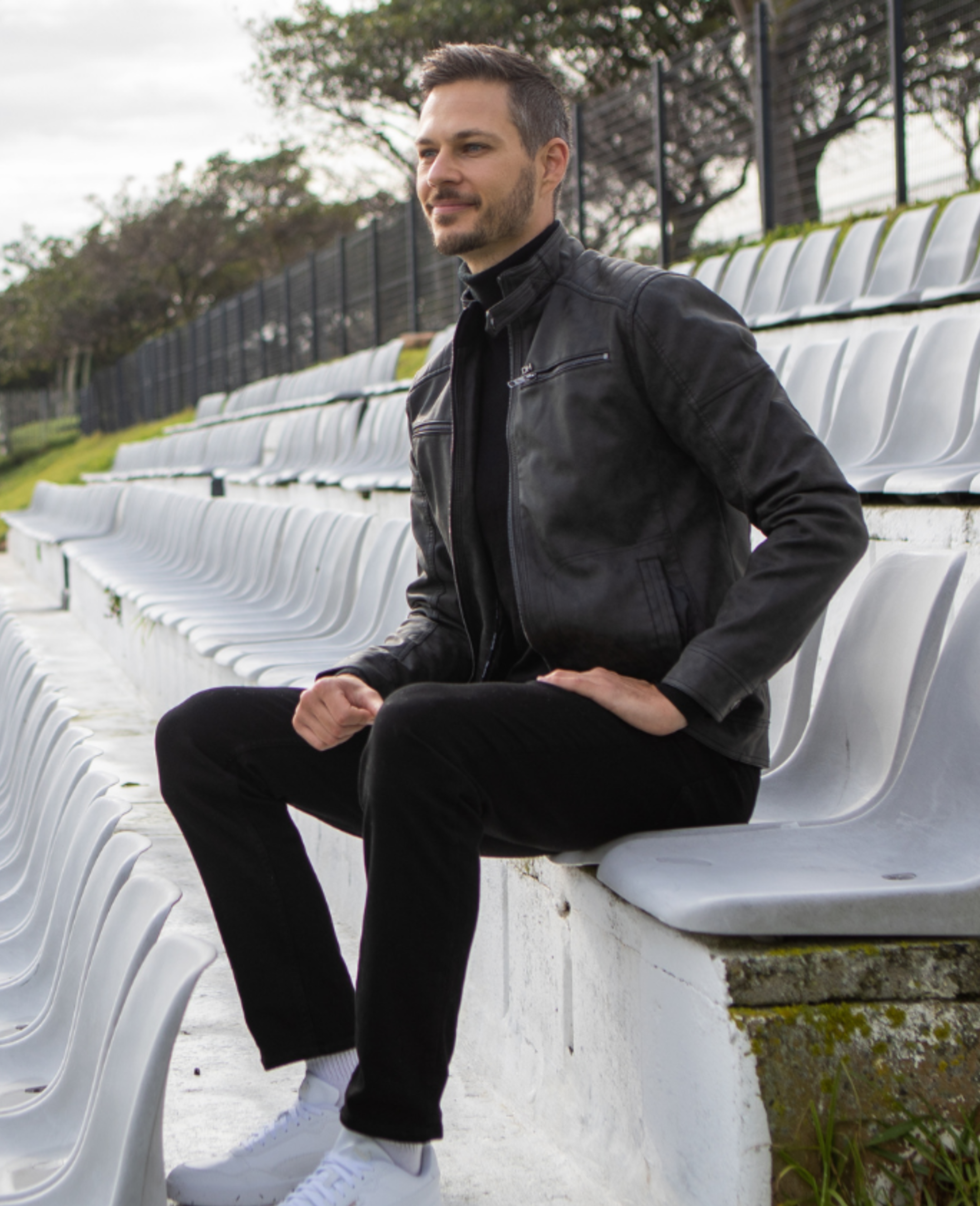
SOCCER BREATHWORK PROGRAM
Control your Breath. Play with Calm Confidence. Stop Choking under Pressure.
Breath training is the next evolution of elite soccer performance. Optimal oxygen uptake improves energy, supercharges focus, helps you enter flow states and builds the mental toughness and calm confidence you need to perform in high pressure environments. These are the skills coaches and scouts look out for in players.


4.98/5 – trusted by 150+ Players

Is this You?
You train hard.
You WANT to perform consistently.
BUT your body and mind don’t always show up when it counts.
❌ Nerves before competition
❌ Choking under pressure
❌ Losing focus during the game
❌ Simple mistakes that kill confidence
❌ Trouble sleeping or switching off mentally
❌ Feeling low energy even after 8h of sleep
❌ Fatigue, cramps, or low motivation
⚠️
!This is NOT a Mindset Problem!
Mindset Training alone often does not help
It's a Nervous System Problem.
It’s your Biology that is stronger than your Mindset.
And your breath controls it.
87.5% of players simply breathe wrong - making performance WORSE - and they don’t even know it.

AS A BALLER - DO YOU KNOW THIS?
THE MENTAL CHALLENGES MANY FACE
Matchday -1
Performance Anxiety
Kickoff is still hours away but you feel restless, with a nervous stomach and a racing mind - burning vital energy you miss in game.
Pre Game
Too Nervous or Too Flat - both States Kill Performance
Right before the match, one of two things happens:
You’re either over-stimulated
Heart racing. Muscles tight. Everything feels rushed.
Or
You’re under-activated
No sharpness. No fire. You can’t switch on.

Kickoff
Lack of Focus&"silly" mistakes
The game starts.
You need 5–7 minutes to mentally arrive.
Your head is still somewhere else.
Then it happens:
a simple mistake
losing confidence
playing safe and hiding
And here’s the truth:
Coaches notice. Scouts notice. You miss chances.
Final Minutes
Cramping&Gassing out Early
85th minute.
You are gasping for air.
Legs are burning.
Cramps creeping in and you lose focus again
You want to push.
But your body hits the brakes.
Not because of fitness but because:
breathing mechanics collapse if untrained
CO₂ tolerance limits performance
your nervous system forces a shutdown
Your will/mentality is there but your body isn’t.
Post Game
No reset. No recovery. No progress.
The match ends but your system stays on high alert. You lie in bed exhausted, but awake, replaying mistakes, overthinking every moment. The next day, you feel heavy, not fully recovered. Not sharp.
YOUR TRANSFORMATION
WHAT PERFORMANCE BREATHWORK CAN GIVE YOU

INNER CALM
Mental Composure under Pressure
It's the big game and the pressure is on. One early mistake early and normally your chest tightens. Your thoughts speed up and you start forcing things. But when you’ve trained your breathing system, something shifts. You stay calm and focused - emotions don't take over. You reset faster after mistakes. You don’t rush the next pass just to “fix” the last one. You stay in the game.
Calm doesn’t mean soft. It means steady.
And steady players are the ones coaches trust.
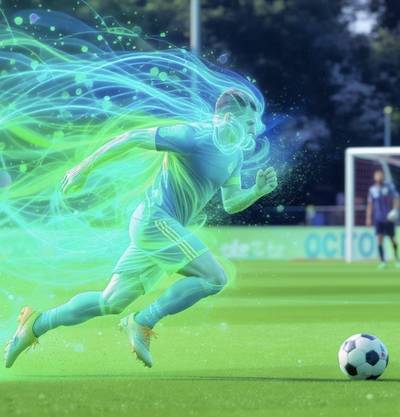
PHYSICAL GAINS
Power & Control
You know that feeling in the 75th minute when your legs start to feel heavy? When your breathing is trained (Biomechanics) you don’t gas out the same way. You recover faster between sprints. Your legs don’t burn as early. You stay sharper when others fade. It’s not magic. It’s oxygen uptake, control, and stability beyond core training - based on what top athletes train after every training session to gain the edge. When your breathing works for you, your body stays more stable, especially through the core. That means cleaner turns, stronger duels, and less panic fatigue late in games.
You don’t just last longer.
You stay dangerous longer

RECOVERY & ENERGY
Ready again Tomorrow
The final whistle blows, but for many players the game doesn’t stop in their head. They replay mistakes. Sleep poorly and wake up flat. When your nervous system is trained, you switch off better. You recover deeper. You come back clearer the next day. Over time that changes everything, becausein elite environments, consistency is what separates potential from progression.
Not just one big performance once in a while
but more stable ones consistently
BREATHING...SOUNDS SIMPLE RIGHT?
"Well, 87.5% of athletes get it wrong. Silently it costs your legs power, your mind focus and your emotions balance. It's a bit like shooting on your own goal without knowing it.”
MEET YOUR COACH
STEFAN PETER
MAS in Sports Health & Leadership | Mental Performance Coach | Certified Oxygen Advantage Instructor
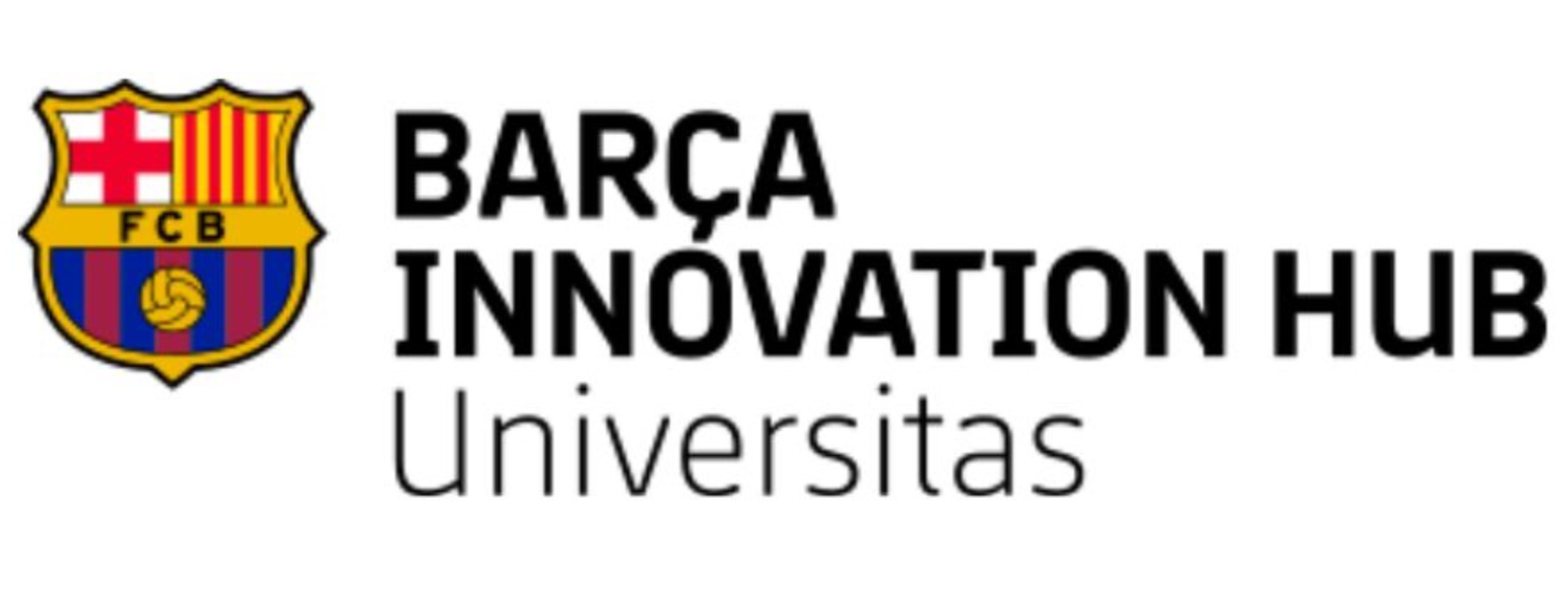
Trained at FC Barcelona in Sport Psychology with a Master Degree in Sports Health and Leadership and certified as an Advanced Breath Trainer at OA Stefan works with players from Bayern Munich, Gotham FC, Bournemouth FC, and international youth academies. He helps athletes quiet the mental noise, find focus, and perform with more calm confidence in elite and pro environments.
"When I sit down with academy coaches from clubs like Orlando City, New York Red Bulls, or Borussia Dortmund, they all confirm the same truth: “Talent gets you noticed. Mental toughness and pressure confidence keeps you there. What they truly look for in players is real, not fake confidence, emotional control after mistakes, and the ability to stay focused and concentrated even under pressure. Breath training is a fast way to get there, without having to spend hours sitting and talking" - Stefan
Inside the program, I share the same proven methods pro teams such as Liverpool FC and the English National team use. They are based on what I have learned at FC Barcelona and on my own experience as a young player - after being scouted by Manchester United, I failed to perform under pressure during a trial with a 3rd league club in the UK at 17.

The Nervous System, Not the Mind, Is the Gatekeeper to Confidence
Most mental training focuses only on the mind - training affirmations, visualization, repeating mantras. Trying to meditate and make an athlete more mindful. Most of the time it does not work.
Because truth is your body decides before your brain does.
Calm confidence and mental resilience lives in your autonomic nervous system first.
If your body perceives threat, no amount of positive self-talk will override it.
The elite train physiological control first - breath, posture, gaze - so their brain gets the message:
“We’re safe. We’re ready.”
That’s why ancient warriors practiced controlled breathing before battle, and why Navy SEALs use their breath to prepare mentally before missions.
Confidence starts with regulating the body’s story, not rewriting the mind’s.
OUR GAMEPLAN
THE FULL PROGRAM OVERVIEW
The 6 week program builds real mental strength from the inside out - by training your breathing, nervous system, focus, confidence, brainwaves and recovery step by step. No fluff - But tools you can use immediately on and off the pitch.
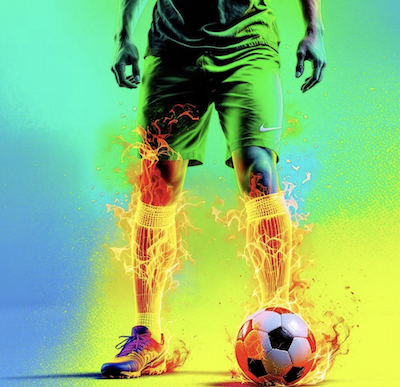
Week 1 - Bio Mechanics & Breath Control
Build the physical foundation of performance
RESULT: You feel lighter and stronger - even late in the game
Week 2 - Stress Control & Mental Toughness
Stay calm and decisive under pressure
RESULT: Pressure rises - You stay calm. Others crack - you don’t.


Week 3 - Emotional Regulation & Mindfulness
Nervous system and emotional control
RESULT: No emotional swings. No spirals. Just steady performance.
Week 4 - Focus & Decision Making
Eliminate "silly" mistakes
RESULT: Cleaner execution. Faster decisions. Fewer errors.


Week 5 - Selftalk & Communication
Play with authority and confidence
RESULT: You feel confident, respected and mentally solid
Week 6 - Goalsetting & Direction
Value based - for meaningful growth
RESULT: You wake up ready, focused, and hungry — not drained.

UNDERPERFORMANCE IS 90 % MINDSET AND ONLY 10% PHYSICAL
Mental strength and calm under pressure drives at least 50 % of elite performance, yet most players spend 0 % of training time on it. Then they wonder why they panic under pressure, lose focus after a mistake, or need five minutes just to settle into a match. Breathwork is the perfect start to improve your game inside out.
WHY SOCCER BREATHWORK WORKS?
SCIENCE BASED EFFECTS
HELPS REDUCE
INJURY RISK
According to recent FIFA research ACL injuries occur 80% in non-contact situations like landing or cutting. Poor core stability increased ACL injury risk by up to 3.5×. (Zazulak et al., 2007 (Am J Sports Med)
Diaphragm strength training helps stablize the core and reduces side stitches significantly.
MORE OXYGEN UPTAKE
TO IMPROVE ENDURANCE & SPRINTS
Research published in the European Journal of Applied Physiology shows that performance breath training can improve repeated sprint performance by up to 30–64% and endurance and VO2 max by up to 8-15%
Breath-focused warm-ups improve athlete performance in the first 15 minutes of play.
89% of players improved accuracy with pre-shot breathing routines.
BETTER
RESILIENCE & RECOVERY
Controlled breathing techniques optimize HRV- heart rate variability - and accelerate recovery between training sessions by up to 30%.
Athletes using breathwork fall asleep faster and have more REM sleep.
IMPROVES
FOCUS& CONCENTRATION
Almost everyone struggles to concentrate and stay emotionally balanced these days - making breathwork training and mental performance training even more valuable for athletes who need to perform at their peak - not just on the pitch but also in life. *thanks tiktok for screwing us up.
More confidence and less anxiety before games.
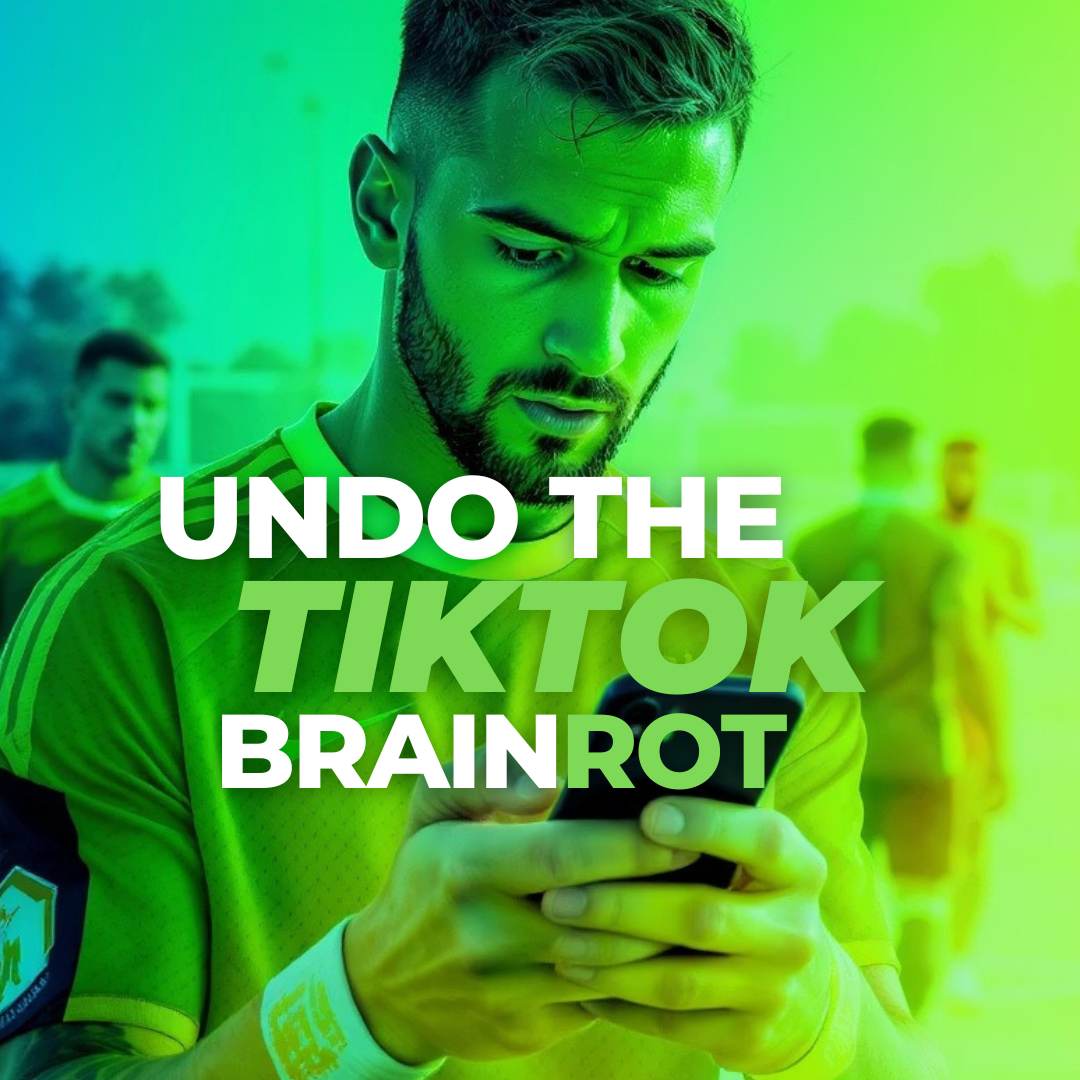
BREATHWORK - BUILD A CHAMPION MINDSET ON AND OFF THE PITCH
BREATH BY BREATH - TRAIN THE BODY & THE MIND
If you know that mental strength is what separates good players from great ones, but you’re not really sure how to improve your confidence, your self talk and manage your performance anxiety, this program is the right fit for you.You’ll build powerful daily breathing habits that create real, 360° progress: physically, mentally, and emotionally. Every morning, I’ll check in with you, sending you short, soccer-specific breathing and mindset messages via whatsapp - to help you get ready for training and game days. Think of me as your personal guide. We’ll build your focus, confidence, and energy together - breath by breath, day by day.
You’ve got this. Just breathe.

Build Your Self-Talk Routine
Beat Pre-Game Nerves
Breathwork + Core Strength
Stay Focused Under Pressure
Activate Your Vagus Nerve
Bounce Back From Mistakes
Sleep and Recovery Protocol
3 Hacks to overcome Mistakes
Brainwave Trainingplan with mp4
Mentally deal with Injury
Mytochondria Energy Reset Protocol
The best Mindset Tech for Players
INCLUDED IN THE PROGRAM
This is what you get
Build Your Self-Talk Routine
Beat Pre-Game Nerves
Breathwork + Core Strength
Stay Focused Under Pressure
Activate 100% Calmness
Bounce Back From Mistakes
BEST PRACTICES
TEAMS ALREADY USING BREATHWORK SUCCESSFULLY
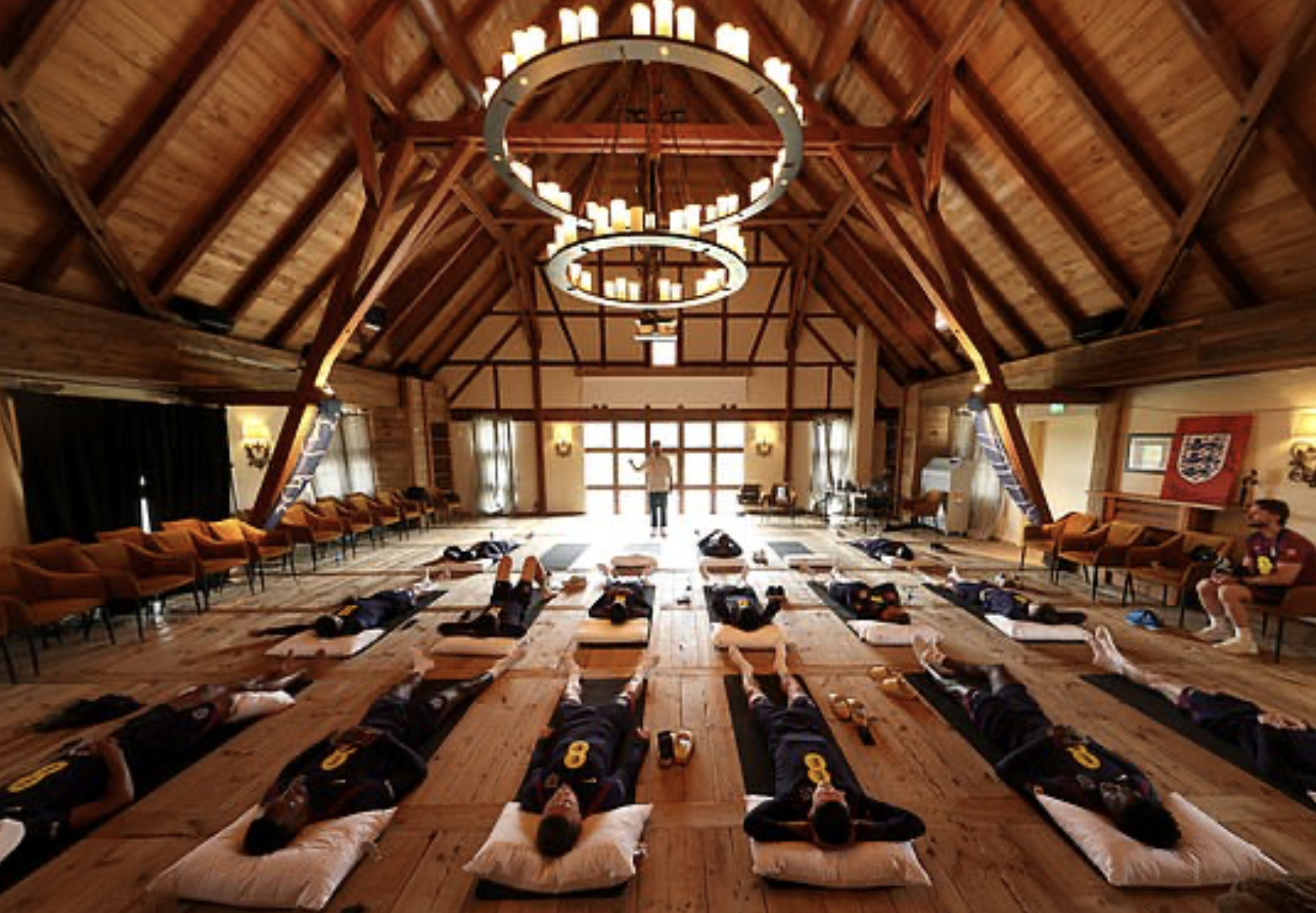
English Nation Team
Euro 2024
During the Euros 2024 the team around Harry Kane prepared themselves mentally before games to stay calm and composed, especially before penalty shootouts.
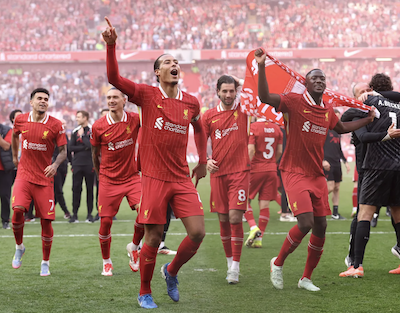
Liverpool FC
Body Wake Up Protocol
Arne Slot introduced a new protocol called "Body Wake up." Players now do breath training to prepare mentally and physically for games and training sessions.
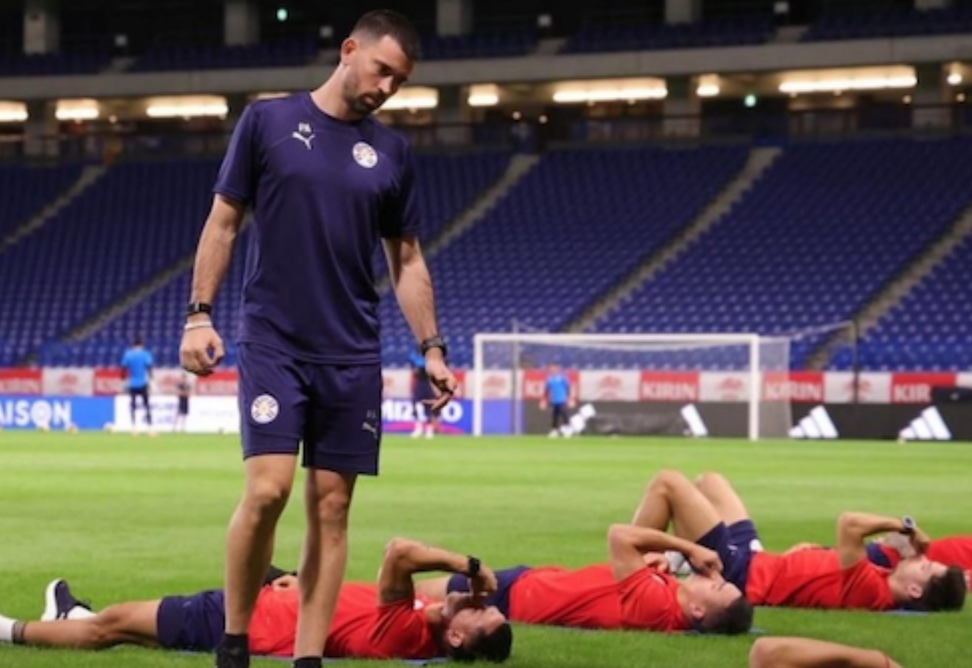
Paraguay National Team
Mental Warmup before games
Using Oxygen Advantage Instructors the Paraguay National Team warms up the respiratory system, sharpens focus and oxygen delivery to help get into mental flow states before the game starts.

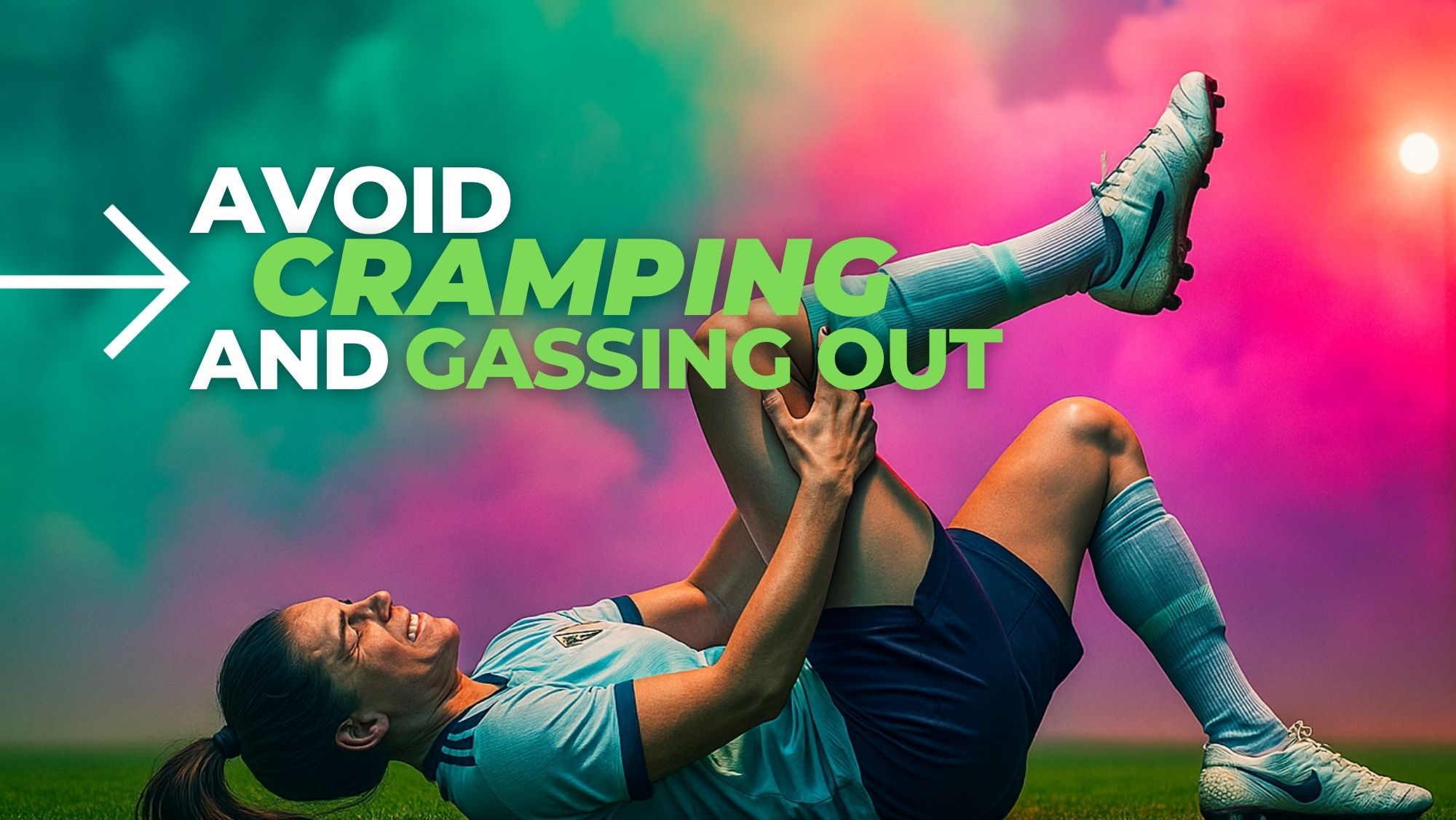
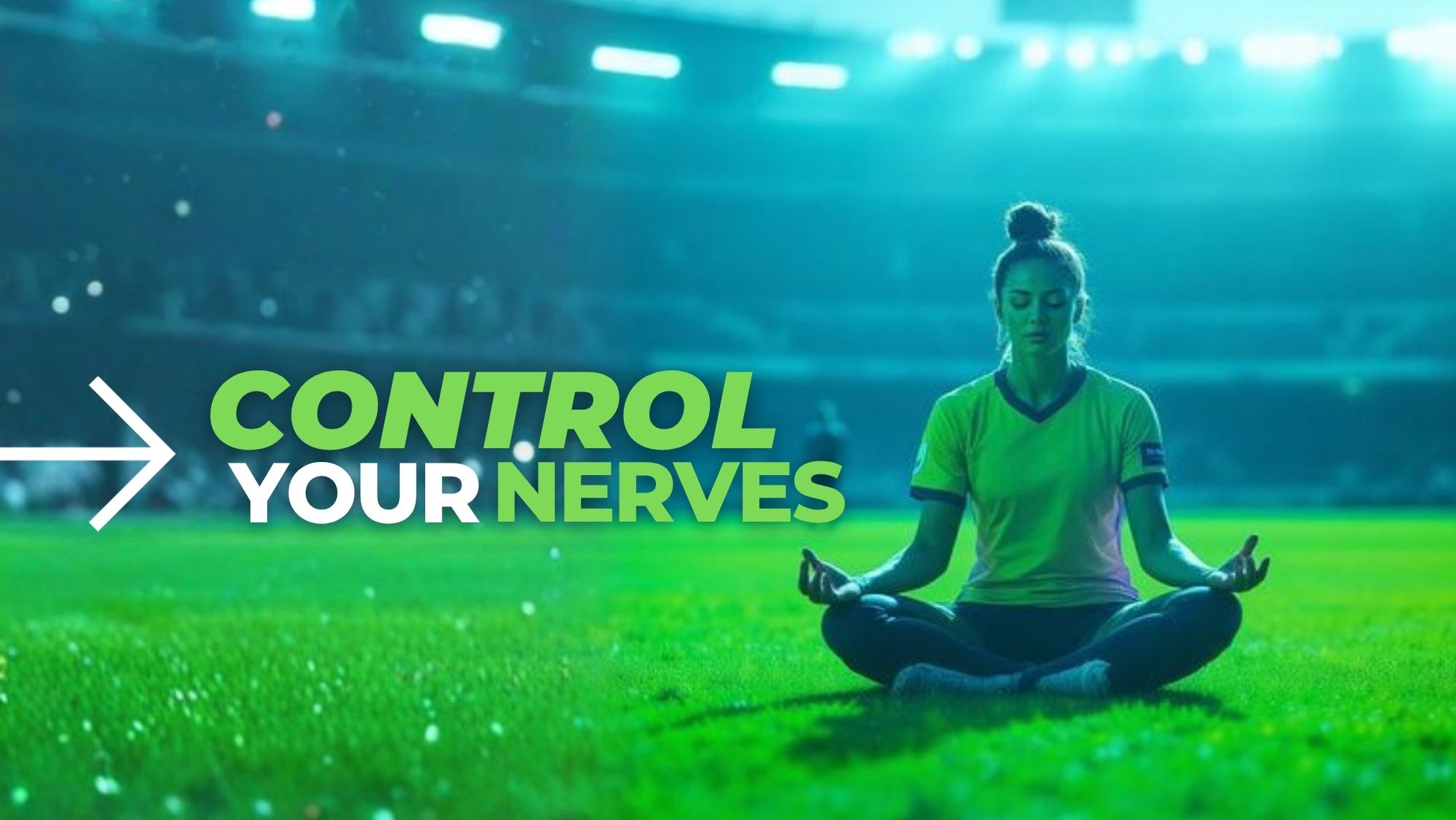


THIS PROGRAM ISN'T ABOUT HYPE, HOLLOW MOTIVATION OR WOO WOO!
Soccer Breathwork is elite mental & physiological training that soccer players have been missing. It's body, mind and emotions aligned for peak sports performance.
Case Study 1: Alexander - Losing Focus During Breaks
Alexander - Austria Second Bundesliga Player. He noticed losing focus regularly right after short breaks like throw-ins, corner kicks, injury breaks etc. He’d switch off for just a second, and that second was enough to miss a mark or react too late.
What is happening? After intense moments, when breathing stays fast and shallow heart rate doesn’t settle, the nervous system stays tense, and the brain gets less oxygen. Research shows that when breathing and heart rate stay irregular, focus and reaction speed drop.
Through breath training, Alexander learned how to use his breathing to reset between plays, and increase his attention span. (Focus + Attention + Attention Span = Success) Within weeks, he was more composed, made fewer mistakes, and stayed switched on from the first to the last whistle.
Case Study 3: Sofia - Waking Up Tired and Lack of Energy Pre-Game
Sofia, US College Player. She used to wake up feeling tired and also starting games feeling flat and low in energy. She and her coach didn’t want extra routines, so she needed something simple that didn’t interrupt training.
What’s happening? Due to her college demands and soccer expectations Sofia was chronically stressed, over-breathing even during light exercise. It kept her body tense and delayed her recovery and sleep.
Simple breathing exercises helped Sofia build the habit to breathe light and steady during warm-up and before going to bed to help her calm down and sleep better to feel more energy before games and trainings.
Case Study 5: Diego - Anger and Emotional Control
Diego, 15-year-old academy player. His problem was losing his temper and getting stuck in frustration after mistakes like a missed pass, or a bad call. His dad said, “When Diego’s calm, he’s brilliant. But when he’s angry, he’s gone.”
The brain floods with adrenaline, and clear thinking disappears. Studies show that when the nervous system is overstimulated, emotional regulation drops sharply (Thayer & Lane, 2000).
Diegos daily breath protocol including short recovery breaths right after mistakes, helped him calm his body before his emotions took over. Within weeks, he stayed composed, made faster recoveries after errors, and even started leading by example and communicate better with himself and his team instead of reacting in frustration.
Case Study 7: Josh - Weak Communication and Vocal Power
Josh, 16-year-old international center-back. His wanted him to be louder and command the team from the back. But Max felt shy, tense, and struggled to project his voice.
Through breathing exercises, Josh strengthened his diaphragm and learned to speak from his center, not his throat. Within weeks, his communication improved, his teammates started responding, and he began to feel like a true leader on the pitch.
Case Study 2: Miguel - Nervous Before Penalties
Miguel, 17 year old Spanish talent. Every time he stepped up for a penalty, his heart would race, breathing quick and shallow. His goal was to become more calm and decrease his nervousness in important moments of the game.
What’s happening? When players are too stressed and their nervous system is out of balance, their attention shifts outward, like focusing on the goalkeeper, instead of on their own execution. As a result, they’re more likely to miss the shot (Wilson, Wood & Vine, 2009).
Through breathwork, Miguel learned to calm his nervous system before penalties — inspired by CR7’s Euro 2024 data, showing his heart rate drop from 170 to under 110 bpm during shootouts. By controlling his breath, Miguel centered his focus on his routine, not the noise. The result? More composure, confidence, and goals under pressure.
Case Study 4: Lisa - Hesitant Goalkeeper with Fear of Pressure Moments
Lisa, Pro Goalkeeper, struggling with confidence and presence in the box. Before corner kicks or long free kicks, she’d feel her body tense up and her mind race. Players coming at her in full speed made her hesitate, feel intimidated and often unsure whether to come out or stay.
She knew the problem was about state control. Her breathing was out of her control, keeping her system in “freeze” mode instead of the self confident and alert focus (positive aggression) she needed.
Through in-game breathing, Lisa learned to find the balance between calm and power - full of energy, but in control. Her body language shifted first: taller stance, sharper movements, stronger presence. Soon her decisions followed, and she became the confident, reliable leader her team trusted.
Case Study 6: Ani - Performance Anxiety
Anxiety and freezing before matches but also big tests. She said it felt like her “body locked up.” Her breathing became shallow, her heart raced, and she couldn’t think clearly.
This happens when over-breathing reduces oxygen flow to the brain a reaction known as hypocapnia-induced cerebral vasoconstriction. The result: your body feels tense, and your brain goes blank.
With breath training, Ani learned how to slow her breathing and control especially her exhale before pressure moments. Her body calmed down, her focus returned, and she no longer felt paralyzed before matches or exams. Breath by breath, she built real confidence from the inside out.
Case Study 1: Alexander - Losing Focus During Breaks
Alexander - Austria Second Bundesliga Player. He noticed losing focus regularly right after short breaks like throw-ins, corner kicks, injury breaks etc. He’d switch off for just a second, and that second was enough to miss a mark or react too late.
What is happening? After intense moments, when breathing stays fast and shallow heart rate doesn’t settle, the nervous system stays tense, and the brain gets less oxygen. Research shows that when breathing and heart rate stay irregular, focus and reaction speed drop.
Through breath training, Alexander learned how to use his breathing to reset between plays, and increase his attention span. (Focus + Attention + Attention Span = Success) Within weeks, he was more composed, made fewer mistakes, and stayed switched on from the first to the last whistle.
Case Study 2: Sofia - Waking Up Tired and Lack of Energy Pre-Game
Sofia, US College Player. She used to wake up feeling tired and also starting games feeling flat and low in energy. She and her coach didn’t want extra routines, so she needed something simple that didn’t interrupt training.
What’s happening? Due to her college demands and soccer expectations Sofia was chronically stressed, over-breathing even during light exercise. It kept her body tense and delayed her recovery and sleep.
Simple breathing exercises helped Sofia build the habit to breathe light and steady during warm-up and before going to bed to help her calm down and sleep better to feel more energy before games and trainings.
Case Study 3: Diego - Anger and Emotional Control
Diego, 15-year-old academy player. His problem was losing his temper and getting stuck in frustration after mistakes like a missed pass, or a bad call. His dad said, “When Diego’s calm, he’s brilliant. But when he’s angry, he’s gone.”
The brain floods with adrenaline, and clear thinking disappears. Studies show that when the nervous system is overstimulated, emotional regulation drops sharply (Thayer & Lane, 2000).
Diegos daily breath protocol including short recovery breaths right after mistakes, helped him calm his body before his emotions took over. Within weeks, he stayed composed, made faster recoveries after errors, and even started leading by example and communicate better with himself and his team instead of reacting in frustration.
Case Study 4: Josh - Weak Communication and Vocal Power
Josh, 16-year-old international center-back. His wanted him to be louder and command the team from the back. But Max felt shy, tense, and struggled to project his voice.
Through breathing exercises, Josh strengthened his diaphragm and learned to speak from his center, not his throat. Within weeks, his communication improved, his teammates started responding, and he began to feel like a true leader on the pitch.
Case Study 5: Miguel - Nervous Before Penalties
Miguel, 17 year old Spanish talent. Every time he stepped up for a penalty, his heart would race, breathing quick and shallow. His goal was to become more calm and decrease his nervousness in important moments of the game.
What’s happening? When players are too stressed and their nervous system is out of balance, their attention shifts outward, like focusing on the goalkeeper, instead of on their own execution. As a result, they’re more likely to miss the shot (Wilson, Wood & Vine, 2009).
Through breathwork, Miguel learned to calm his nervous system before penalties — inspired by CR7’s Euro 2024 data, showing his heart rate drop from 170 to under 110 bpm during shootouts. By controlling his breath, Miguel centered his focus on his routine, not the noise. The result? More composure, confidence, and goals under pressure.
Case Study 6: Lisa - Hesitant Goalkeeper with Fear of Pressure Moments
Lisa, Pro Goalkeeper, struggling with confidence and presence in the box. Before corner kicks or long free kicks, she’d feel her body tense up and her mind race. Players coming at her in full speed made her hesitate, feel intimidated and often unsure whether to come out or stay.
She knew the problem was about state control. Her breathing was out of her control, keeping her system in “freeze” mode instead of the self confident and alert focus (positive aggression) she needed.
Through in-game breathing, Lisa learned to find the balance between calm and power - full of energy, but in control. Her body language shifted first: taller stance, sharper movements, stronger presence. Soon her decisions followed, and she became the confident, reliable leader her team trusted.
Case Study 7: Ani - Performance Anxiety
Anxiety and freezing before matches but also big tests. She said it felt like her “body locked up.” Her breathing became shallow, her heart raced, and she couldn’t think clearly.
This happens when over-breathing reduces oxygen flow to the brain a reaction known as hypocapnia-induced cerebral vasoconstriction. The result: your body feels tense, and your brain goes blank.
With breath training, Ani learned how to slow her breathing and control especially her exhale before pressure moments. Her body calmed down, her focus returned, and she no longer felt paralyzed before matches or exams. Breath by breath, she built real confidence from the inside out.
Got more questions? (FAQ)
No — the program is designed to complement, not interrupt, your existing training. Most sessions take only 10–15 minutes and can be done before or after practice, or even integrated into warm-ups and cooldowns. Many teams notice improved focus, faster recovery, and fewer overreactions during intense sessions without needing to change their regular schedule.
Absolutely — it can be done in-season. In fact, that’s when players benefit most. The breathing techniques are low-impact and restorative, helping athletes recover faster between matches, sleep better, and manage stress from competition. Think of it as mental conditioning that fits perfectly into the rhythm of the season.
Yes — and they should. For injured players, breathwork becomes a powerful tool to maintain conditioning, support recovery, and stabilize the nervous system when they can’t train physically. Controlled breathing can also reduce inflammation, improve circulation, and accelerate healing — plus, it keeps them mentally connected to the team routine and mindset.
© Copyright 2025 - All rights reserved | Stefan Peter Coaching LLC
MASTERCLASS + FREE AUDIO
Enter your email to get your FREE guided box breathing session on your 📱 now!
Feel calm, focused, and game-ready - even before you hit the pitch.
Pro tip: Listen in the dressing room.
Breathe easy - I'll never give away your data!
Melde dich jetzt kostenlos für mein nächstes Webinar an
Erfahre kostenlos, wie du innerhalb der nächsten 14 Tage dein Problem lösen kannst und welche Schritte nötig sind.
Die Eintragung ist kostenlos und du kannst sie jederzeit mit einem Klick widerrufen.
Club or Academy?
Enter your E-mail address and I reach out to you as soon as possible to discuss a special offer of up to 40% depending on how many players you want to sign up.
Alternatively feel free to reach out to me and tell me more about your vision for your club today. [email protected]
